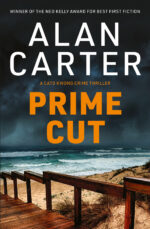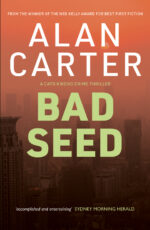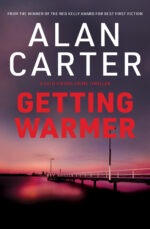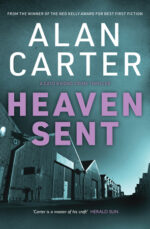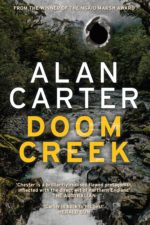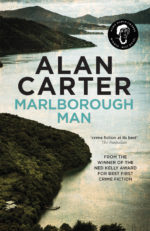INTERVIEW: Alan Carter
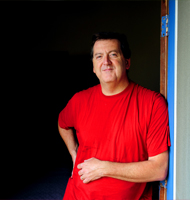
Debut novelist Alan Carter talks about crime writing and his new book Prime Cut.
Have you been a long-time crime reader?
If you count reading The Famous Five when I was about eight or nine then yes; but I’ve been reading the grittier stuff for about the last fifteen years or so. Ian Rankin’s Rebus series was the backbone of it, before moving on to James Ellroy, Graham Hurley, James Lee Burke and latterly some more exotic or historical ones like Qiu Xiaolong’s Inspector Chen series and Philip Kerr’s Bernie Gunther series.
How long have you been writing?
I write as part of my TV documentary work: narration, story proposals, synopses et cetera. So I’ve been doing that for about twenty-five years. Fiction is a very recent departure and Prime Cut, which I started in 2008, is my first foray into this genre.
Was there a moment that prompted this particular story? How did the idea germinate?
The moment my wife said she was prepared to let me be a kept man for a year while I wrote this so-called book I reckoned was in me – that was a turning point. But there were several stimulants: reading about a cold case in a newspaper, recalling situations I’d witnessed while working on TV cop reality shows, hearing shark tales from Hopetoun locals, reading about exploited migrant workers on 457 visas, and looking every day at the landscape around Hopetoun.
Prime Cut is acutely observant of social problems such as family dysfunction, exploitation of migrant workers, Indigenous history, and police corruption. What role do you think stories and literature play in addressing such issues?
Kim Scott’s Benang is a classic example of how the history of Indigenous people, particularly from that south coast area, can be vividly and very movingly brought to life. Crime fiction is a useful genre for talking about these things too – any crime story or series I’ve enjoyed in the past has been firmly rooted in the pervasive social issues of the time – as indeed are many real life crimes. For example, Graham Hurley’s Joe Faraday series portrays a bleak and cynical United Kingdom under New Labour. Martin Cruz Smith’s Renko series charts the disintegration of the USSR and the emergence of the new Russian oligarchs. Through these protagonists and the crimes they investigate we get an insight into those societies at that time in their history.
How did you balance the real place of Hopetoun with a fictional storyline?
Very carefully — I might want to go back and live there again someday. The descriptions of place are as real as I remember them. The characters are complete figments of my imagination (especially the bad guys) — any resemblances to people living or dead are purely coincidental et cetera, et cetera.
Cato Kwong is a complex character who seems fully realised from the very beginning of the book; what were the main ingredients in creating Cato?
He’s kind of me but a few centimetres taller, a few kilos lighter, and a good few years younger. Oh and Chinese. And I don’t play the piano. But the crosswords bit is me.
Several aspects of racism are raised in Prime Cut, which are in contrast to the ‘multicultural’ line officially promoted (for instance in Cato’s poster-boy past). How grave do you think this disconnection is in our society?
Not being a victim of racism myself I can’t really comment on the degree of the disconnect between image and reality. But in general terms you don’t have to look far (the daily news and comment blogs, for example) to see constant reminders that not everybody shares the Advance Australia Fair thing – particularly the second verse about ‘those that come across the sea’.
What did your research for police work involve?
Recalling my scary middle-of-the-night outings in cop show reality-TV-land; reading lots of Graham Hurley (his attention to police procedural detail is outstanding); and watching and reading a lot of news.
Does your work as a television documentary director influence your writing style, or do you keep them in separate spheres?
I try to keep them separate but I have been chastised in both quarters for my occasional resort to cliché (however tongue-in-cheek I might claim to be). The doco work has taught me clarity, terseness, brevity, pacing, and tension along with sprinklings of humour, so in that regard there are parallels. But crime writing for me offers a way back to the occasional bursts of lyricism and subtlety which are a rare commodity on telly these days.
Where to next for Detective Senior Constable Kwong?
He’s back in the big smoke under the care and guidance of his old boss DI Mick Hutchens, and engaged in a deadly game of cat and mouse with the luscious but lethal Lara Sumich. Watch this space.



